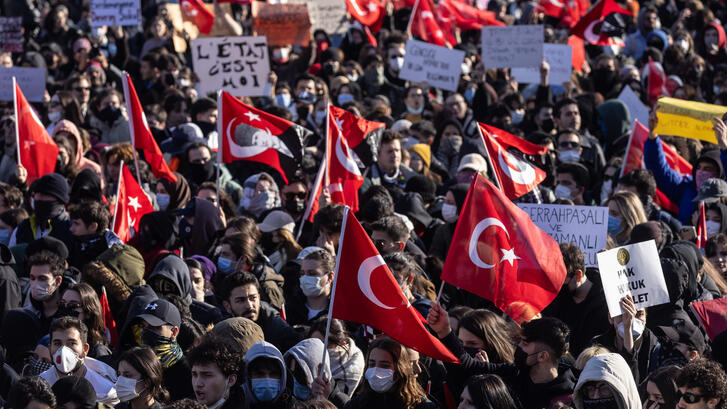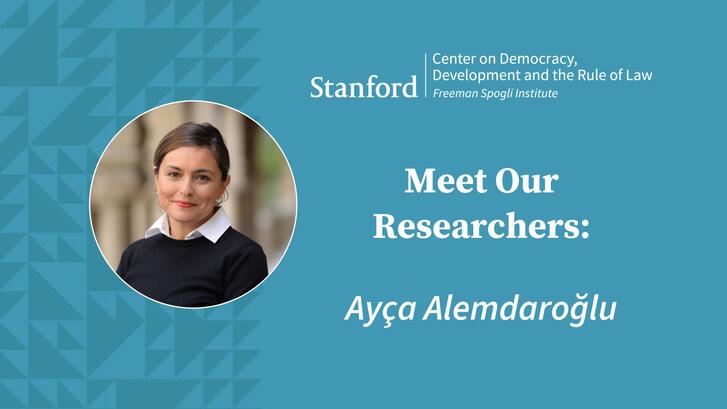Ayça Alemdaroğlu

Ayça Alemdaroğlu
- Research Scholar
- Associate Director, Program on Turkey
Encina Hall, E108
616 Jane Stanford Way
Stanford, CA 94305-6055
Biography
Ayça Alemdaroğlu is the Associate Director of the Program on Turkey and a Research Scholar at the Center on Democracy, Development, and the Rule of Law at Stanford University. She is also a Global Fellow at the Peace Research Institute Oslo (PRIO). As a political sociologist, Ayça explores social and political inequalities and changes in Turkey and the Middle East.
Previously, she was an Assistant Professor of Sociology and the Associate Director of the Keyman Modern Turkish Studies Program at Northwestern University.
She received her Ph.D. in sociology from the University of Cambridge, her MA in political science from Bilkent University, and her BSc. degrees in political science and sociology from the Middle East Technical University.
She serves on the editorial committee of the Middle East Report.



